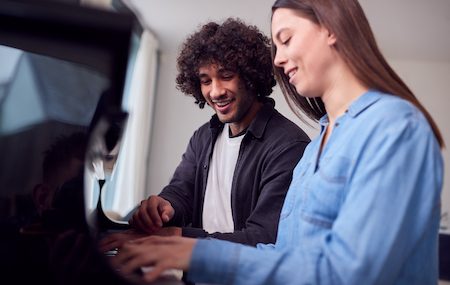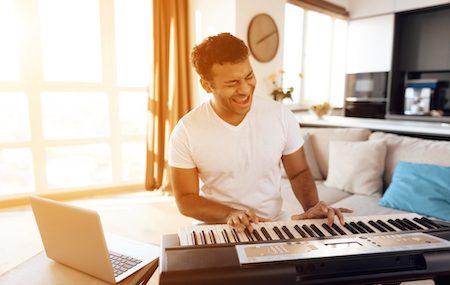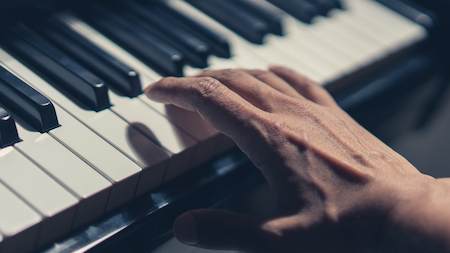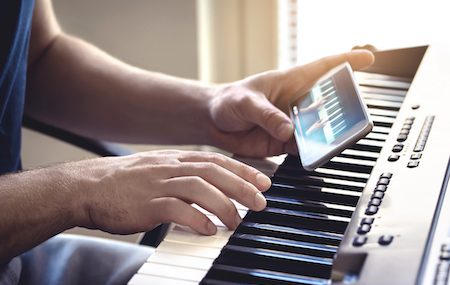Summertime. It’s a time for relaxing, playing with your friends, and spending time at the swimming pool. It’s a time for summer vacations, and for leaving your cares behind for at least a little while.
For most families, that also means forgetting normal routines. You can start those up again once structure returns to your daily lives. Push aside piano lessons for a bit, and wait until the school year returns.
But like everything, if you don’t make something a practice, you start to lose your ability. You forget the individual nuances that made your piano practice routine possible.
Before you return to your weekly piano lessons, slowly bring the piano back into your lives by doing these few things.
Start with warm-ups
If your child has taken piano lessons for any length of time, they know warm-ups are part of a normal practice. It gets your fingers and wrists into the game, and your mind on what you hope to accomplish. Let your child do a few things they enjoy. Practice scales. Play easy songs. Play music they enjoy. This will give them a positive reason to get back into the piano practice routine.
Check posture
Kids can grow almost overnight. When was the last time you ensured their piano stool met their needs? Take a few minutes and see how they sit. Are they correctly placed at the keyboard? Also make sure they are sitting properly on the bench. No slouching.
Check out new games
Every time you look at the app store, new games pop up, ready to be played. Do a quick search and see what’s new. Are there challenging piano games they might enjoy? This can get them back into the basics, and make them want to jump into playing the piano once again.
Play with a group
Birds of a feather … Chances are if your child enjoys music, they have friends that enjoy it as well. Why not bring the gang together to make music? You can think beyond piano players – violins, guitars, flutes, even the drums can bring variety to practice sessions and allow your child to explore their creativity. Other parents may also enjoy the process.











